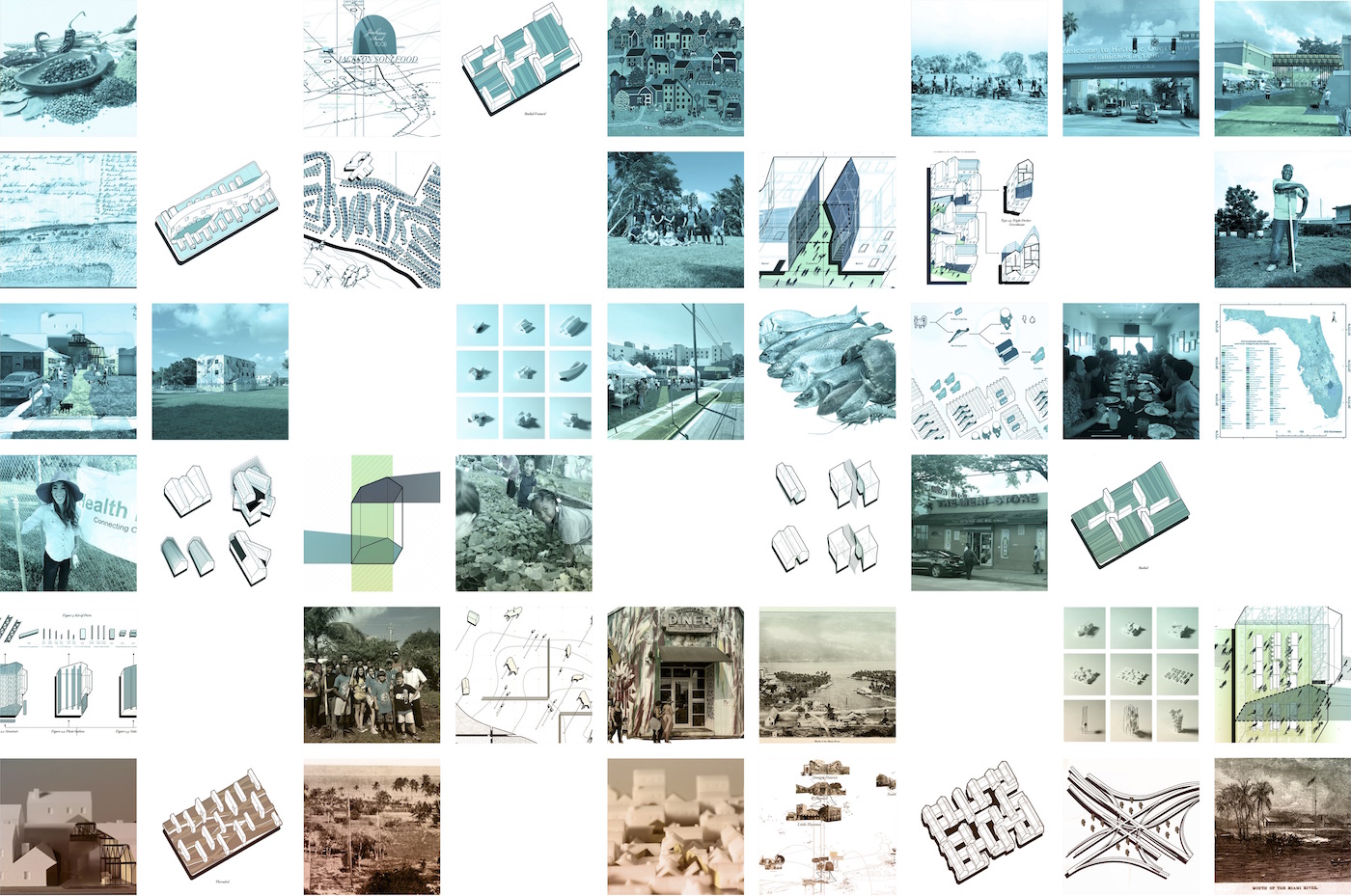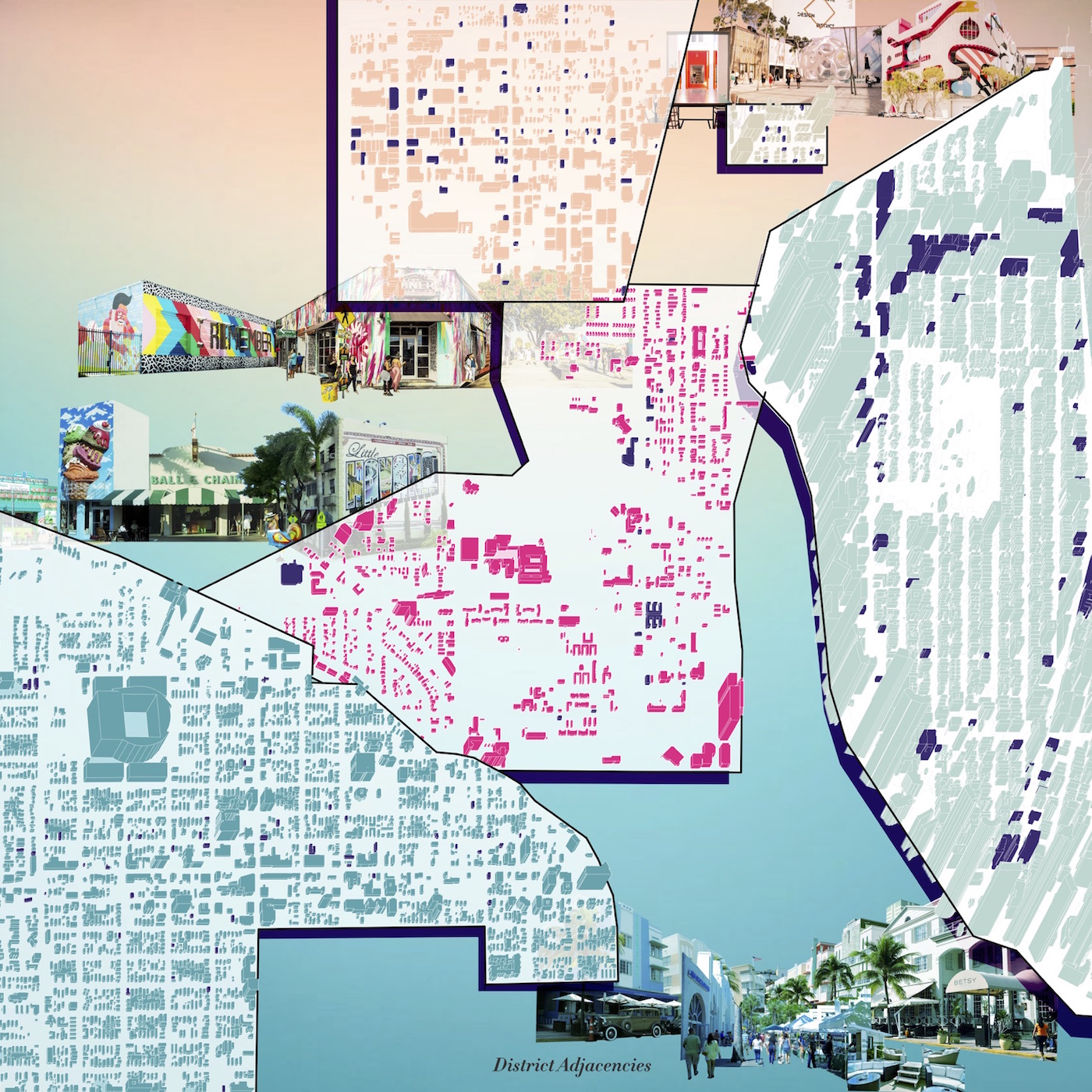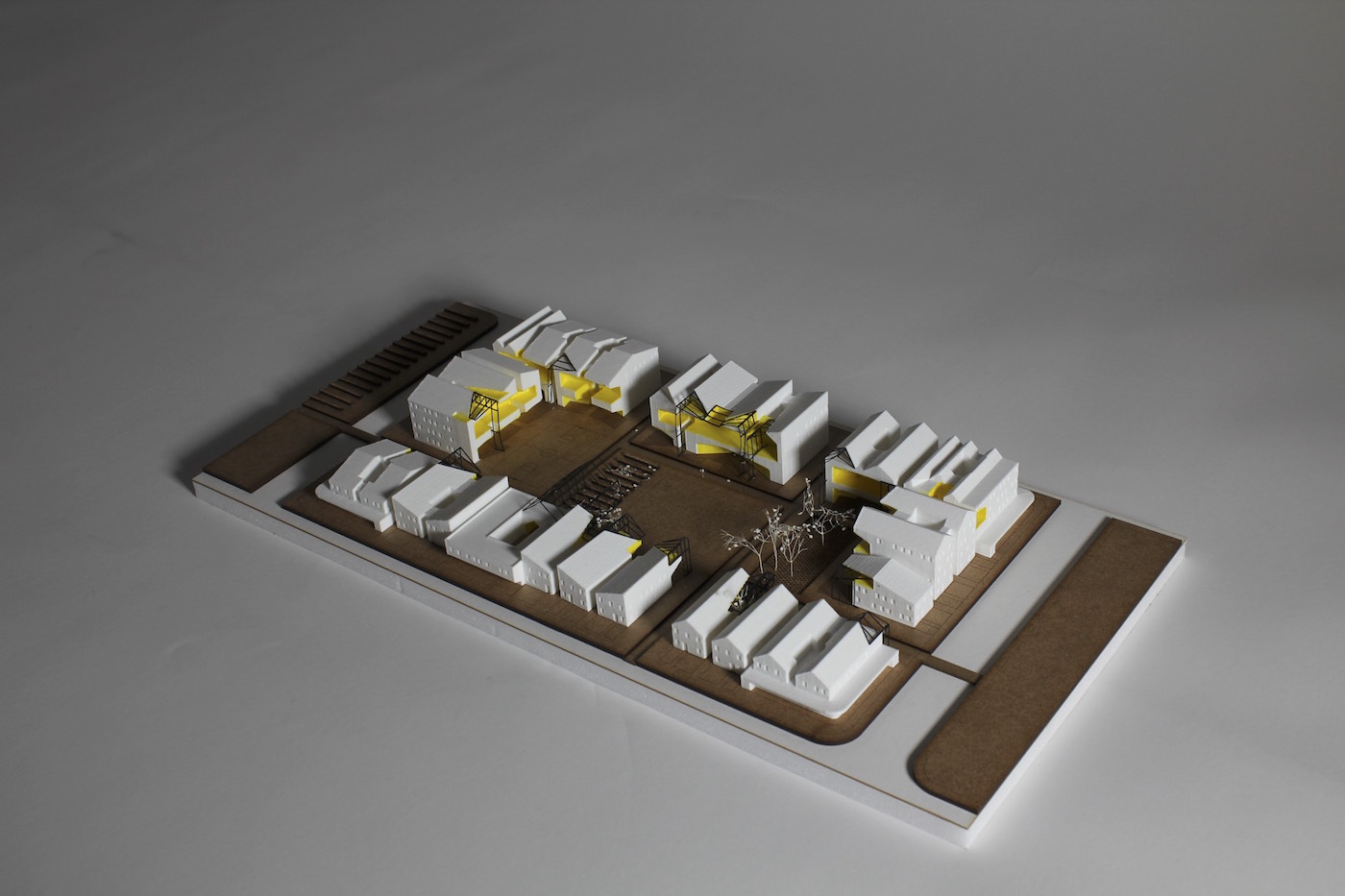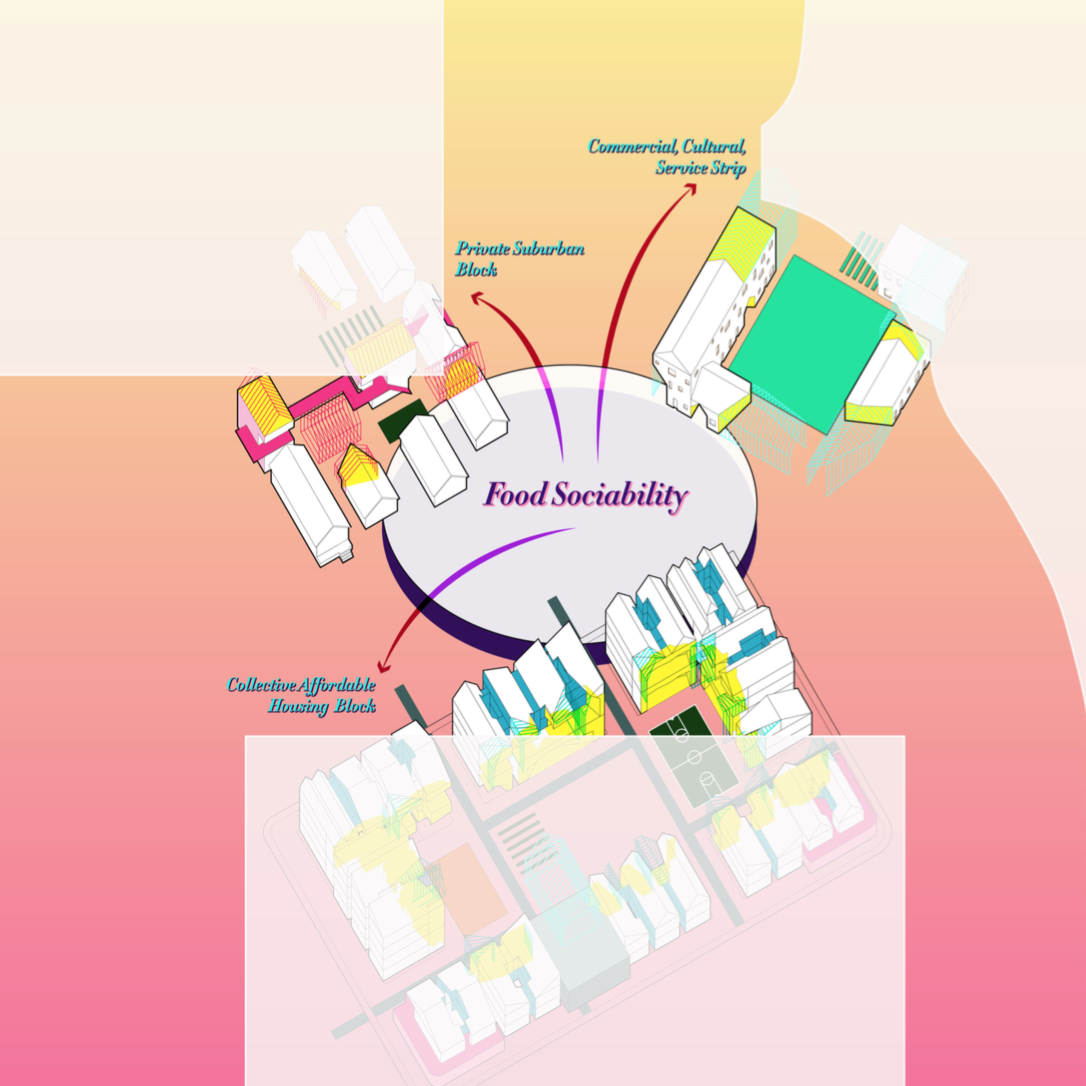Food Sociability: Common Social Denominators
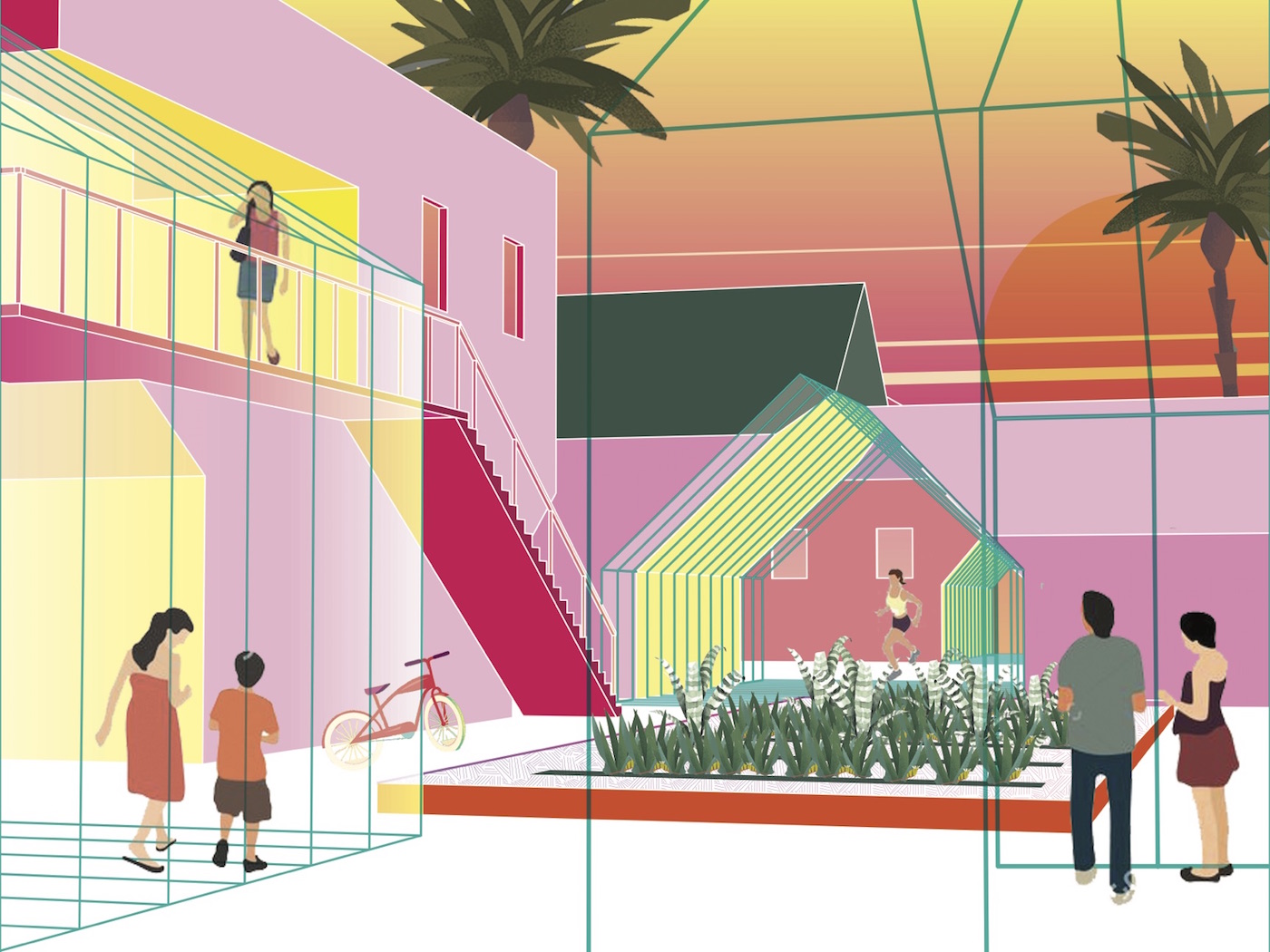
Evan Shieh (MAUD ’19) and Panharith Ean (MArch ’20)
How do we design around the sociability of food and small-scale food production in the urban landscape as a catalyst for domesticity and communal living? This project is instigated by what might be termed the “common social denominator” of food and the sociability around eating together, gardening together, and living together, activities that bind us as humans. The project instrumentalizes the spatial sociability of food as the foundational building block to critique and intervene tactically in three typological sites, each representing a different ownership model.
In the first site, the private single-family suburban block is co-opted with the introduction of Accessory Dwelling Units (ADU’s) that are tactically inserted into the backyards of existing single-family dwellings in order to increase density and provide additional rental income. In this model, previously underutilized side and back yards are activated by communal gardens and fruit trees while micro-openings in existing dwellings create sociability between neighbors.
In the second site, a publicly-owned affordable housing mega-block is critiqued with a new block typology that inverts typically outward-facing porches towards the interior of the block. New interior-facing porches are reconstituted programmatically with communal kitchens and outdoor dining while porous block interiors are activated by greenhouses, community gardens, orchards, and recreational sports, anchored by guardian institutional community centers and corner restaurants.
Lastly, an existing commercial/cultural corridor in the district is reinforced by inserting extensions to existing restaurants and grocery stores, new retail and farmers markets on vacant lots, and even housing additions when density is needed.
In totality, the three sites represent an opportunity for tactical urbanism catalyzed by food sociability and food production, design strategies that spatialize and build upon the existing robust culture around food in the district of Overtown and the city of Miami at large.
